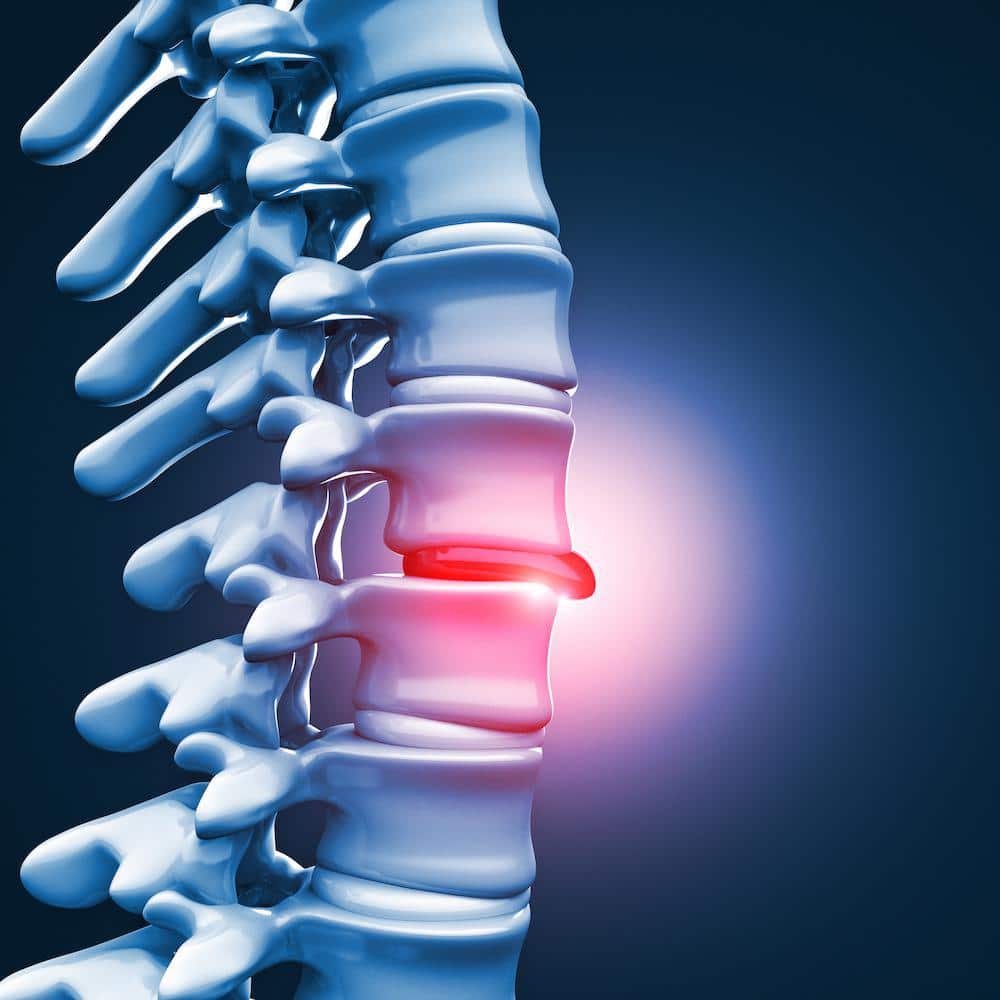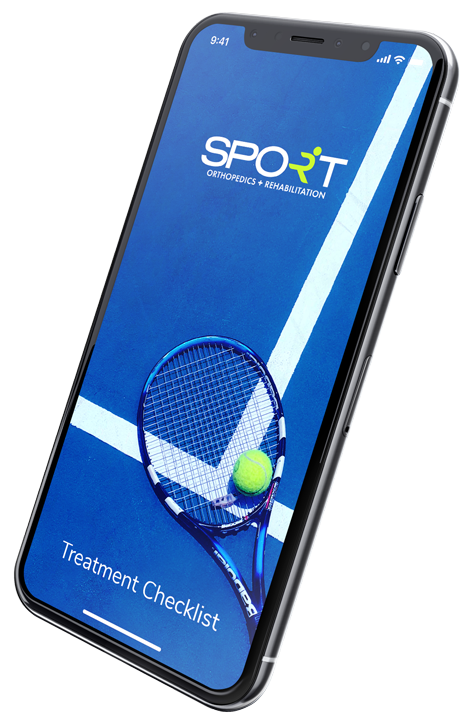Bulging Disc Treatment in Dallas
Herniated Disc, Slipped Disc
What Is a Herniated Disc?
Discs are located between neighboring vertebrae in the lumbar and cervical spine. These discs are crucial for spinal health because they reduce friction, aid in spine bending and flexing, and function as “shock absorbers” between the hard bones (vertebrae).
A thick outer ring of cartilage (annulus) and a gel-like interior material (nucleus) make up the discs in the lower back. The makeup of discs in the neck (cervical spine) is similar, although they are significantly smaller in size. These discs contain a lot of water and need to be malleable and hydrated in order to work effectively.
The discs may begin to dry and deteriorate over time for a variety of causes. The discs become fragile and vulnerable to damage as a result of these alterations. When the outside ring of cartilage (annulus) splits or cracks, the interior gel-like material (nucleus) might escape through the breach. This is a bulging disc.
A herniated disc can irritate surrounding nerves or the spinal cord, resulting in unpleasant sensations. Spinal trauma, repeated stress and overuse, heredity, unhealthy body weight, poor diet, and tobacco use can all cause a bulging disc in the lower and upper spine. Additionally, it’s important to remember that bulging disc pain can often mimic other conditions, such as sciatic nerve pain.

Symptoms of a Bulging Disc
Many people are unaware that they have a bulging disc. They don’t feel any discomfort, yet the disc is visible on diagnostic imaging. If you do experience pain from herniated discs, it generally starts as a dull lower back discomfort and then progresses to a shooting pain (sciatica) when it goes down into the hips and legs. Muscle spasms and numbness or paralysis are common side effects of the pain. Below, we list the most common symptoms.
- Weakness: The muscles don’t get a normal nerve signal because the disc is pushing on the nerve, thus they weaken with time.
- Pain in the extremities: Lower back pain is caused by herniated discs in the lower back, whereas arm discomfort is caused by herniated discs in the neck. Leg discomfort can manifest itself in the thighs, calf, buttocks, and even the foot. Shoulder discomfort is the most common source of arm pain.
- Numbness or tingling: Numbness and tingling in the arms and legs are caused by the damaged nerves. You may suffer shooting pain as a result of nerve irritation when you shift positions, sneeze, or cough.
Do Herniated Discs Heal?
It’s true that the symptoms of a herniated disc can go away on their own, frequently without the need for medical treatment. Is this, however, evidence that your ruptured disc has recovered on its own? The answer is complicated. Your symptoms may go away, but it doesn’t imply your herniated disc is completely cured.
How does a bulging disc heal or become asymptomatic on its own? The symptoms of a lumbar herniated disc are considered to be reduced by three major mechanisms.
- An immune response: Your body may detect the herniated disc fragment as foreign material and attack it, decreasing the fragment’s overall size.
- Water absorption: Water is present in the herniated disc fragment. This water will be absorbed by your body over time, causing the herniated disc segment to decrease in size.
- Disc mechanics: Some claim that the symptomatic section of your disc can be pushed inside into the disc and away from your spinal nerves by doing extension exercises.
What Are Bulging Disc Treatment Options?
A bulging disc can be treated with a variety of non-surgical options, some of which may be more effective for certain individuals than others. Treatment is primarily determined by how long the patient has been experiencing symptoms and how severe the pain is. The type of the symptoms (such as weakness or numbness) and the patient’s age are further factors to consider.
Medication and physical therapy are frequently used to begin conservative treatment. Restricted activities may be required in certain situations until the discomfort lessens. The following are some of the treatments available.
- Non-steroidal anti-inflammatory drugs (NSAIDs) like ibuprofen tend to be the first step for a bulging disc.
- By releasing pressure on the nerve, a physical therapist can prescribe postures and exercises to reduce the discomfort of a bulging disc. In virtually all cases of back pain, exercise is an important part of the recovery process.
- For low back discomfort that has persisted at least a month, spinal manipulation can be fairly helpful. Low-back discomfort is the greatest candidate for this therapy.
- Cold packs can help reduce pain and inflammation at first. Switch to moderate heat after a few days for relief. You can also read our blog, “Is heat or ice better for back pain?” to determine the right solution for you.
- Because the drug is injected into the region around the spinal nerves, cortisone injections (epidural steroid injections) can give longer-term relief. Swelling and inflammation can be reduced with the use of oral steroids.
When Is Surgery Necessary?
Only a small percentage of patients with herniated disks require back surgery. If conservative therapies fail to relieve your symptoms after six weeks, especially if you continue to have the following symptoms, your doctor may recommend surgery.
- Badly controlled pain
- Weakness or numbness
- Difficulty walking or standing
- Bowel or bladder control problems
Almost the majority of the time, surgeons can only remove the projecting part of the disk. It is only seldom necessary to delete the full disk. The vertebrae may need to be united with a bone transplant in certain situations. Metal hardware is implanted in the spine to give spinal support during the months-long process of bone fusion. Your surgeon may, on rare occasions, recommend the implantation of an artificial disk.
What Is a Slipped Disc?
A soft, gelatinous interior section and a strong outside ring make up each disc. The inner part of the disc might protrude through the outer ring due to injury or weakening. A slipped, herniated, or prolapsed disc is the medical term for this condition. This creates discomfort and agony. You may suffer numbness and discomfort along the afflicted nerve if a slipped disc compresses one of your spinal nerves. In extreme cases, surgery to remove or repair the slipped disc may be required.
How Do I Know I Have Herniated Disc Pain?
One indicator might be the location of the discomfort. Herniated disks can occur anywhere in your spine, but they are most prevalent in the lowest section of your spine (lumbar spine), right above your hips. Your back discomfort may travel to your buttocks, thighs, and even your calves.
While you have a herniated disk, the pain is generally stronger when you’re active and diminishes when you’re resting. Coughing, sneezing, and even sitting can exacerbate your symptoms by putting pressure on pinched nerves. You may have tingling or numbness as a result of a herniated disk. Your back may also feel weak in the afflicted area.
Seeing your doctor is the best method to find out whether you have a herniated disk. They’ll most likely do a physical examination to determine the source of your discomfort. This is frequently the only test required to confirm a diagnosis. Your doctor will examine your back to see if there are any uncomfortable or painful areas. They may request that you lie on your back and lift or move your legs in specific ways. It’s most likely a herniated disk if you’re in pain.
Bulging Disc Treatment Options in Dallas, Texas
If you suffered a sports-related or age-related injury and have severe back pain, you need a Dallas orthopedic doctor. At SPORT, our top priorities are to manage your pain and get you back to your active lifestyle. That’s why we utilize state of the art technology and medical techniques to ensure that you leave our office feeling revitalized. For more information on the conditions we treat, please call 469-200-2832 to schedule an appointment with us. Not only do we offer advanced treatments, we also offer physical therapy in Dallas and Frisco, Texas.


